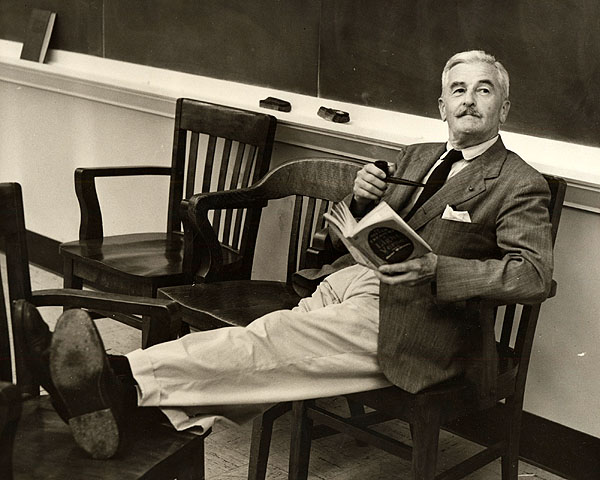20 August 2012
Five Facts About Faulkner
 All the great writers of the American South have an incredible sense of place. In their works, the South is more than just a setting, but is a character of its own. William Faulkner’s masterpieces are no exception: they are filled with the sights, smells and sounds of the South, and the distinctive frame of mind of its people. Faulkner’s richly imagined Yoknapatawpha County, a fictionalized version of his own Mississippi homeland, is inhabited by a cast of vivid and unforgettable characters that Faulkner drew from his own family’s centuries-long history in the American South.
All the great writers of the American South have an incredible sense of place. In their works, the South is more than just a setting, but is a character of its own. William Faulkner’s masterpieces are no exception: they are filled with the sights, smells and sounds of the South, and the distinctive frame of mind of its people. Faulkner’s richly imagined Yoknapatawpha County, a fictionalized version of his own Mississippi homeland, is inhabited by a cast of vivid and unforgettable characters that Faulkner drew from his own family’s centuries-long history in the American South.
Faulkner, a bona fide Southern gentleman who shunned the spotlight, was a unique character himself, often amusing those around him with his idiosyncratic ways. Here are a few fun facts to provide a new perspective on this astonishing literary genius:
-
Faulkner declined a dinner invitation from First Lady Jacqueline Kennedy, saying, “That’s a long way to go just to eat.” ("What the Great Ate," Jacob and Jacob)
-
He supported himself as a postmaster at the University of Mississippi, but was fired for reading on the job.
-
Faulkner never graduated from high school or earned a college degree, yet he won the Nobel Prize for Literature, two Pulitzer prizes and the National Book Award, twice.
-
A notorious ladies' man, Faulkner’s affair with the young writer, Joan Williams, from 1949–53, is the subject of her 1971 novel, The Wintering. ("One Matchless Time: A Life of William Faulkner," Jay Parini)
-
He wrote two volumes of poetry: The Marble Faun (1924), which is named after a Nathanial Hawthorne novel, and "A Green Bough" (1933), as well as a short story collection of crime-fiction called "Knight's Gambit" (1949).
Love literature? We offer courses on a variety of writers and themes on a regular basis. Discover what's new this quarter on the Humanities section of our website.
Image courtesy of the Special Collections Library, UVA Library.
{^widget|(videourl)https%3a%2f%2fyoutu.be%2fGswCn8KkP88|(containertitle)William+Faulkner|(name)YouTubeVideo|(autoplay)False|(container)VideoContainer|(widget_displayname)YouTube+video|(width)425|(height)355^}
(Updated August 2021)